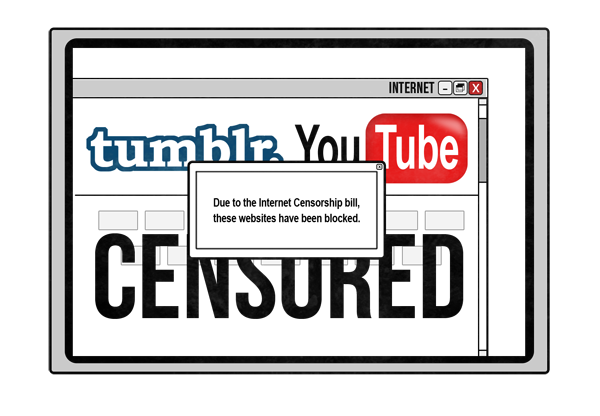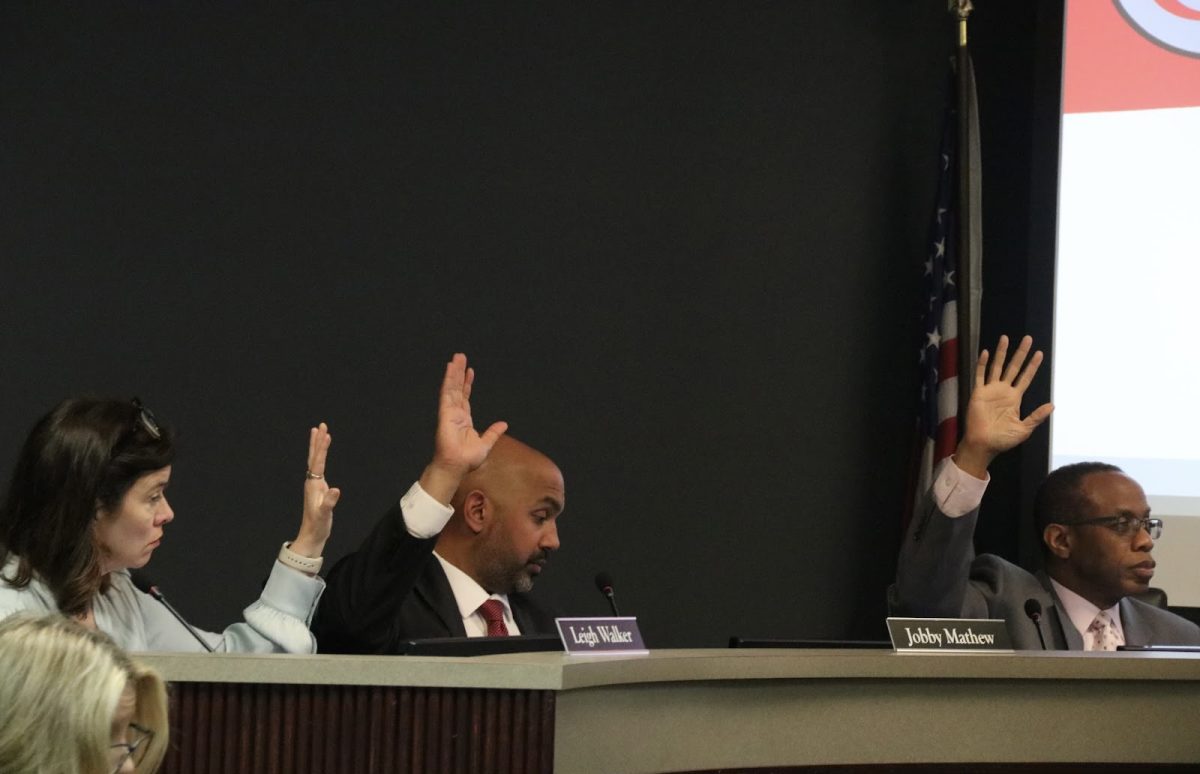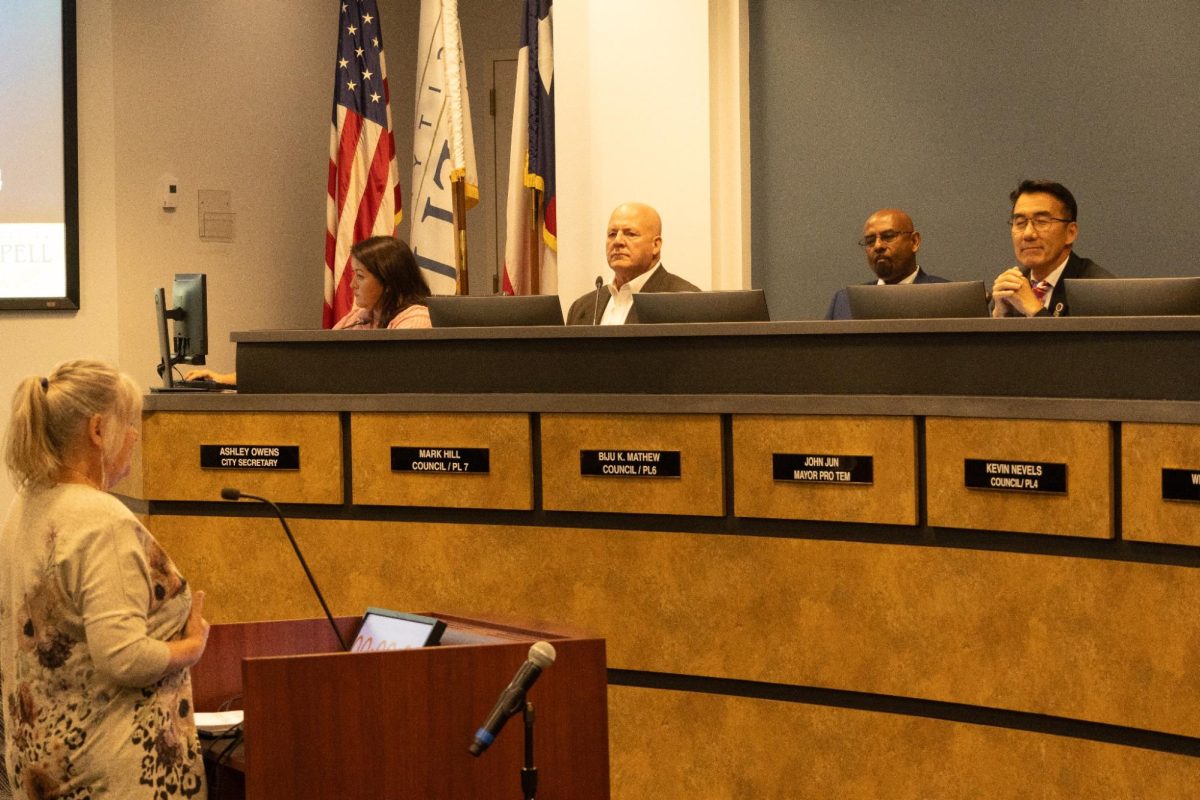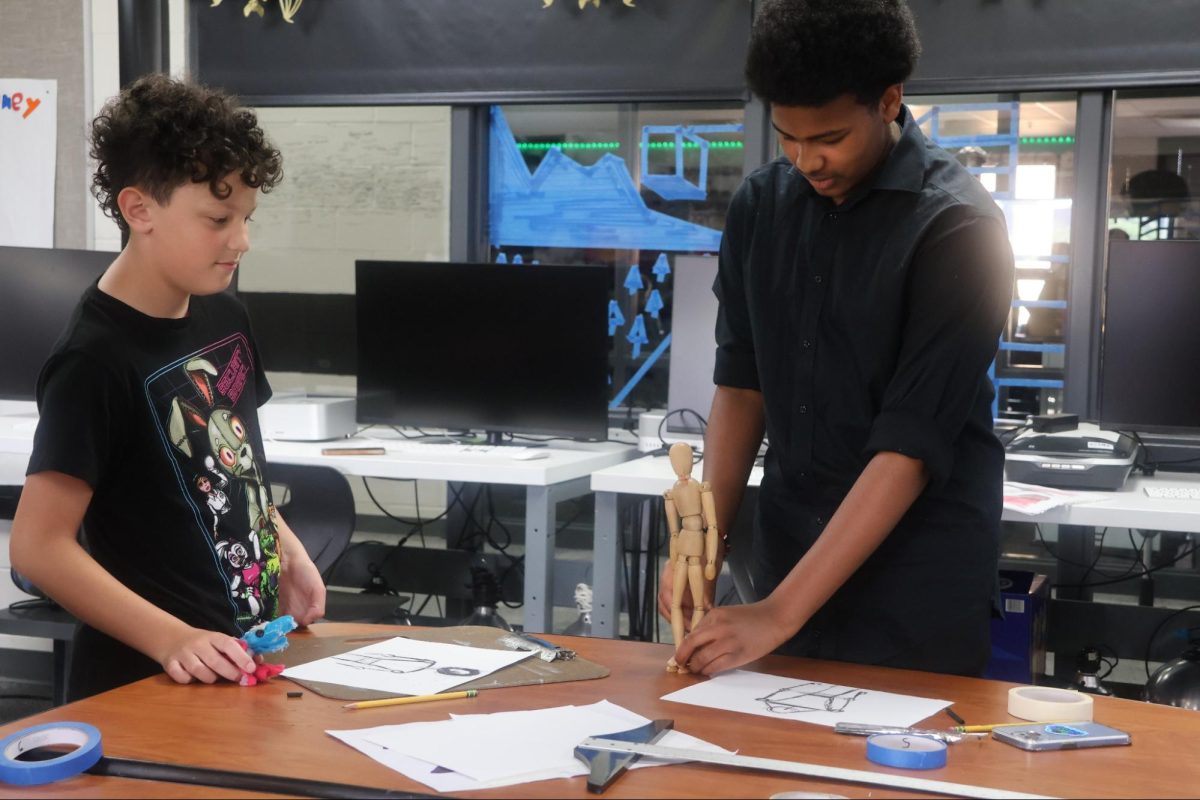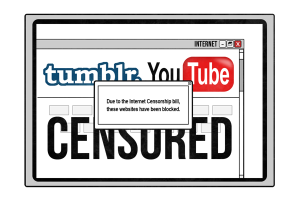
By Caroline Carter
Staff Writer
In a generation where social media has become an essential part to many people’s lives, the possibility of government censorship over the Internet seems nearly impossible. But with the recent push of bills such as the Stop Online Piracy Act and the Intellectual Property Protect bill, the futures of websites such as YouTube and Tumblr are in question.
Lamar Smith of Texas, who is the chairman of the House Judiciary Committee, introduced SOPA to the US House of Representatives on Oct. 26. SOPA’s purpose is to help the government and copyright holders gain control over online piracy along with increasing the penalties for engaging in Intellectual Property theft.
The bill would also give a wide range of control to private companies, singers and actors as it would give them the right to be able to send in a request to Internet sites such as Google or YouTube and force them to cut off access to their work.
“As a parent, I understand that there are a lot of things on the Internet that as a parent that it would be easy to say that there should be censorship but also as a journalist I see things in a different way,” KCBY instructor Irma Kennedy said. “It is scary to think that someone will now make a choice of what is censored for us; I don’t like someone dictating what you can and cannot say.”
Although the bill has gained a tremendous amount of followers ranging from teenagers to adults, Congress has yet to back out of the continuation to pass the bill. Although there is no set date for the passing, Congress notes that the passing could happen at any time. This would result in the way people use the Internet forever.
If SOPA does eventually pass, the Internet as well as free speech will change drastically. Furthermore, the government will have control over which Internet sites to block by using methods that both China and Iran use, though the creators of the bill state that the intention is not that same as China’s Great FireWall, which is the nationwide Web censorship the country uses.
Kennedy, who traveled last summer to China along with several other teachers and administrators, experienced how censorship can affect the way journalists write.
“One of the principals with us was blogging and he had mentioned that we had been to Tiananmen Square in Beijing,” Kennedy said. “The government then had shut his blog down for giving away this information when all what he was doing was blogging for his school and students to follow him. When you experience something like that you get a different understanding of freedom of speech… But there are certainly some parts to the bill that are beneficial.”
One of the new laws that the bill will implant is that it will become a felony to use copyrighted work that costs more than $2,500 to license. For example, if one were to post a video of themselves singing a cover to a popular song on YouTube, this would now be considered a felony if there is no credit given, or in some circumstances if there is a copyrighted song at all.
SOPA currently has a number of companies and organizations that are pushing for the bill to pass including the United Chamber of Commerce, the Motion Picture Association of America and the American Federation of Musicians. All of these companies are paying a great deal of money for the continuation of SOPA.
However, many students of Coppell High School have become outraged with the thought of SOPA passing. With websites such as Tumblr and YouTube frequently visited throughout the day, the passing of the bill would cause many changes to the way teens use the Internet.
“It is really hard to imagine what the Internet and social media will be like if SOPA does pass,” EMAC Academy sophomore Emma Eells said. “Websites like Tumblr are very important to me… I get on them periodically throughout the day.”
Eells, a staff member for the CHS Round-Up yearbook, uses Tumblr to post her own photos as well as re-blog other photographers’ photos and videos.
“Whenever I post a photo that wasn’t taken by me, I always credit the website or blog that I found it on,” Eells said. “I know that since I am a photographer myself, I wouldn’t want someone taking credit for my work. Most people do give credit when they post stuff, but not everyone does which can get frustrating if it is your own work.”
Eells says that the majority of the people she knows of do in fact give credit to a photographer’s work. She does however agree that SOPA would be able to reduce the amount of intellectual property stolen on a smaller scale.
“It would definitely decrease the amount of people that illegally download songs, so that would be one good thing from the bill,” Eells said. “I just think that in the end SOPA would destroy a lot of creative opportunities for people. It’s a difficult situation to decide what the right thing to do is.”
This is another point brought up by many of the bill’s opposers. In a recent article, James Allworth of the Harvard Business School said SOPA “contains provisions that will chill innovation and tinker with the fundamental fabric of the internet.”
Not all people strongly disagree with the bill. With minor adjustments to the bill, some say that it will help improve the Internet, as artists will now be given proper credit for their work.
“I believe that the proposition of the bill is something that will be very beneficial for artists,” sophomore Sydney Owens said. “The music industry is too often pirated through the use of illegal downloading sites and our singers, songwriters and producers aren’t receiving the credibility they deserve.”
Online piracy and illegal downloading costs the U.S. economy an estimated $58 billion in losses every year as well as 373,000 jobs. But if SOPA were to pass, illegal downloading would be somewhat eliminated but there is still the issue of popular sights being black listed.
“Whenever someone decides to illegally download the material that these people have tirelessly worked on to perfect, they are cheating the not just the artist alone, but everyone involved in the process,” Owens said. “Overall, I feel like this bill is necessary for today’s artists to receive the proper recognition they deserve for their efforts in music production.”
Though the future of the bill is uncertain and could pass or be declined on any day, there are several ways to voice one’s opinion including an online petition. For more information on SOPA visit www.fightforthefuture.org









